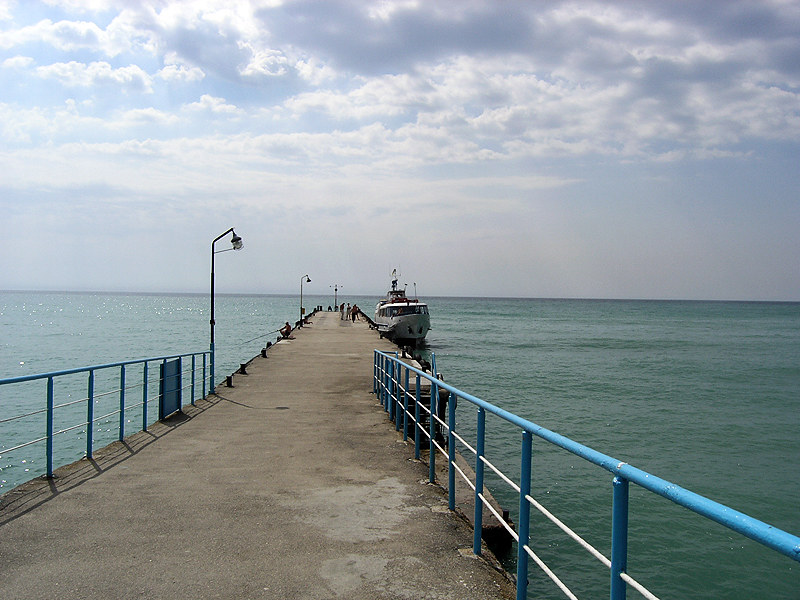Crimea's defeat, behind the scenes of the war
The risk of a forced and prolonged drought as a consequence of the Nova Khakovka dam explosion is just the latest of the heavy wounds left on the peninsula by seven years grappling with the Russian-Ukrainian conflict. The harsh repression of the Tatars, the collapse of tourism, and the trenches and fortifications that have stripped farmers of their land among the consequences of the "mobilization."
Moscow (AsiaNews) - One of the "Russian-Ukrainian" areas under the most pressure in the year and a half of the war, and really in the seven years of the "hybrid" conflict between the two countries, is Crimea, a symbolic peninsula annexed in 2014, and which has known no peace ever since.
The recent explosion of the Nova Khakovka dam threatens to leave it further in the grip of drought, a problem born with the separation from Ukraine, which seemed partially solved with the conquest of the Donbass territories.
In addition to military and logistical issues, Crimean citizens suffer from a variety of restrictions and persecution, as an investigation by Krymskaja Ideja activists illustrates. Arrests and deportations of Crimean Tatars, heirs of the ancient rulers of the area, prohibition of beach exploitation for military reasons, which exacerbates the total lack of tourism, the region's primary industry, are some of the reasons that further weigh down the never-ending tension between pro-Russians and pro-Ukrainians.
The 2014 referendum, in which more than 90 percent of the population chose to reunite with Russia, certainly did not reflect the true division of orientations, at a time of already military occupation.
At least 18 cases of unexplained disappearances of ethnic Tatars have been detected in the past three months, increasing a steady trend of oppression of those who might claim independence on the peninsula, even more than Russians or Ukrainians. Analysts are convinced that the victims are surely many more, and the Tatars themselves try not to spread the news too widely, for fear of further persecution.
Law enforcement agencies, subservient to the military leadership, are conducting increasingly obsessive checks for Ukrainian partisans among the inhabitants, especially at this stage linked to the counteroffensive by Kiev, whose leaders continually repeat that they want to retake not only the areas occupied in recent months, but especially Crimea.
Tatars and suspected pro-Ukrainians are stopped and taken away often for no reason, just outside their front doors or taken from train compartments, to be sent to unknown destinations often with a hood over their heads. Interrogations are held for long hours in secret locations and in a very harassing form, with the use of polygraphs and various forms of violence, with no lawyer present. Many are then handed over to the court on charges of "extremism and terrorism."
Tourist facilities are largely requisitioned for military purposes; as activists document, in the Leninsky rajon province soldiers have occupied children's villages, and all operators have been left totally out of work.
Even the formally still open beaches fail to attract tourists, given the fear of war clashes, and are in any case surrounded by trenches and barricades, making them very unattractive and even less accessible for bathers. Even Feodosija beach, the "Crimean Rimini," has so far remained completely deserted.
The war of the rest is not only blocking tourism, but also agriculture. The very trenches and fortifications, especially in the north of the peninsula, have effectively stripped farmers of their land, making it unsuitable for planting and harvesting anyway. Protests by some entrepreneurs, demanding compensation for losses, have ended in "threats of physical elimination," according to the testimonies collected.
Crimeans are dragged to mobilization in a far more authoritarian form than the rest of the Russian citizens. Many tell of trucks with tinted windows driving slowly around the most populous neighborhoods to stop good men for war, without much formality. State employees are not allowed to quit or resign from their positions, because it would be considered "desertion," as confirmed by several documented cases. Women are not allowed to leave their jobs either, under penalty of being reported for breach of duty.
Schools and families are tarred with constant collections of aid "for the needs of the Svo," the acronym for "special military operation," and children are led in groups by soldiers to offer sweets and little letters of support, written under dictation. The war is still at an uncertain stage, but Crimea has definitely been defeated.
Photo: Flickr /Elena Pleskevich
29/07/2021 10:57
14/06/2021 10:54
14/02/2022 10:48







.png)










